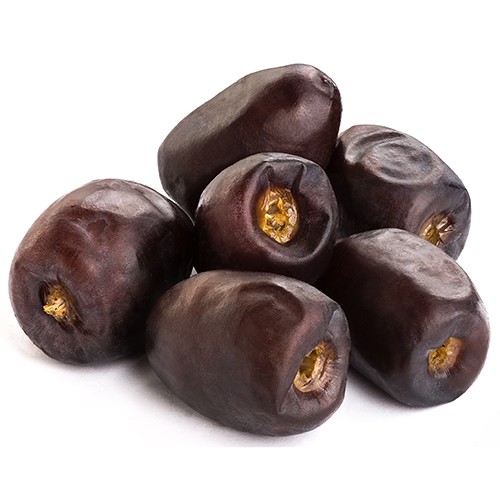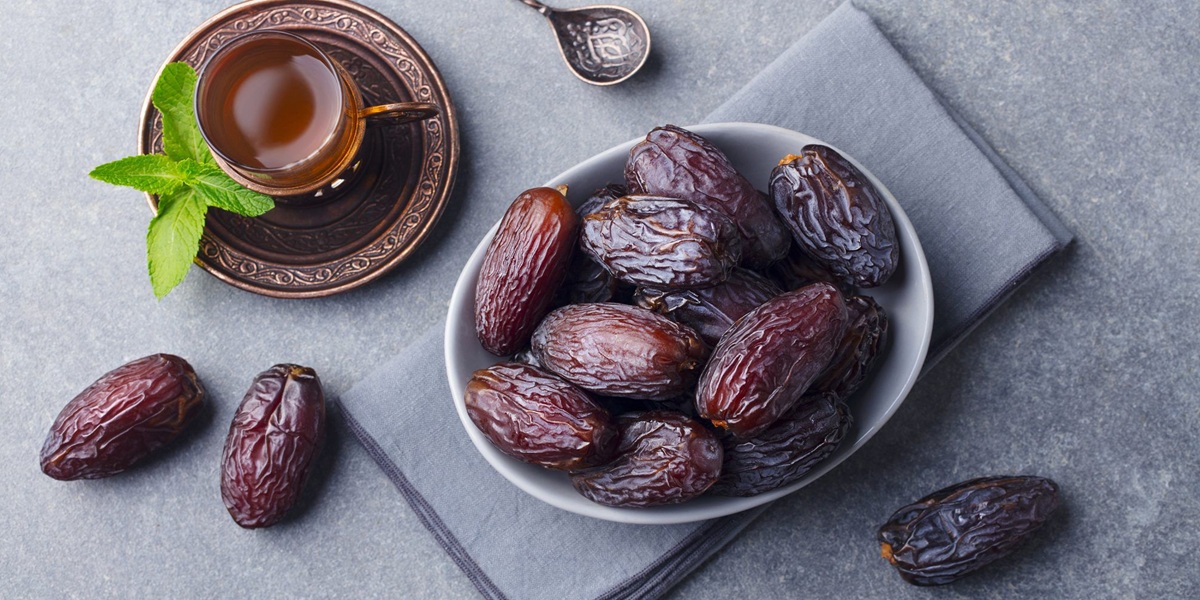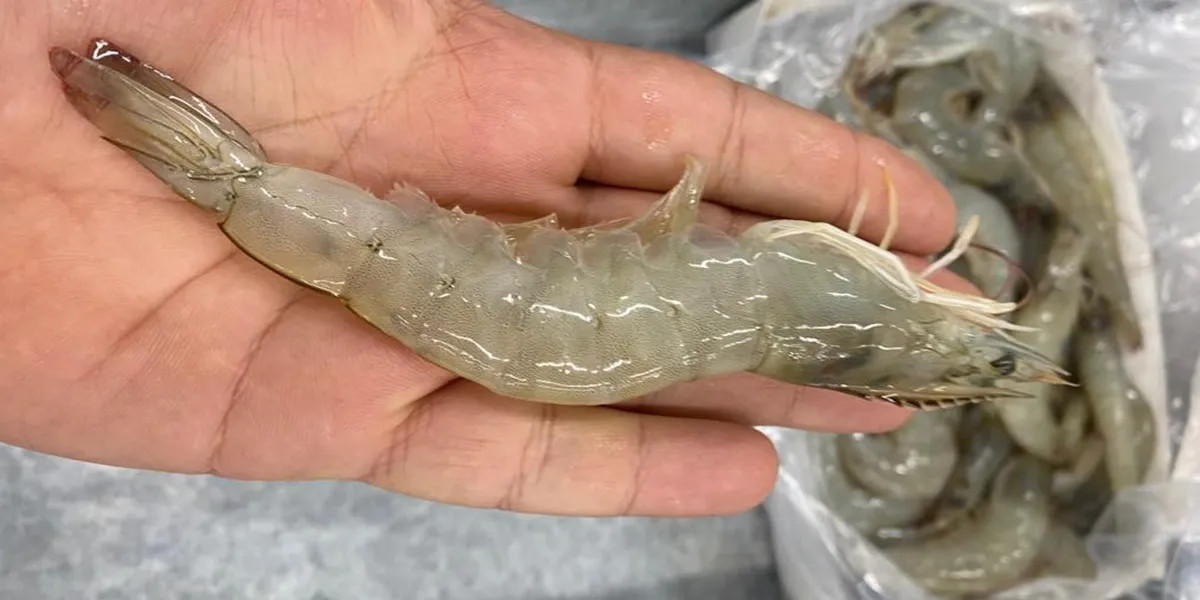If you’re looking for a natural way to boost your energy, improve digestion, and nourish your body with essential nutrients, dried dates might just be the perfect superfood for you. These small yet powerful fruits have been consumed for centuries, not just for their rich taste but also for their incredible health benefits. Packed with fiber, vitamins, and antioxidants, dried dates can support heart health, brain function, and even strengthen your bones. Whether you’re an athlete needing an energy boost, someone looking for a natural remedy for digestive issues, or simply a health-conscious individual, dried dates offer something for everyone.
But what makes dried dates so special? How do they contribute to your well-being, and what are the best ways to consume them? Keep reading to discover the fascinating science behind this naturally sweet powerhouse and how you can make the most of it in your daily diet.
What Makes Dried Dates a Nutritional Powerhouse?
Dried Dates are loaded with essential nutrients that contribute to overall health. They are rich in fiber, making them an excellent aid for digestion and gut health. The fiber in dried dates helps regulate bowel movements, prevents constipation, and supports a healthy gut microbiome.
Beyond fiber, dried dates are packed with natural sugars like glucose and fructose, providing a quick and sustained energy boost. This makes them an ideal snack for athletes, students, and anyone needing an energy pick-me-up. Unlike processed sugars, the natural sweetness of dried dates comes with additional benefits, including antioxidants and minerals that promote long-term well-being.
One of the standout components of dried dates is their high antioxidant content. Polyphenols, flavonoids, and carotenoids found in dried dates help reduce inflammation, fight oxidative stress, and may even lower the risk of chronic diseases such as heart disease and cancer. Additionally, dried dates are an excellent source of essential minerals like potassium, magnesium, and calcium. Potassium helps regulate blood pressure, magnesium supports muscle and nerve function, and calcium is vital for strong bones.
With such an impressive nutrient profile, dried dates are much more than just a sweet treat. They offer a well-rounded combination of vitamins, minerals, fiber, and antioxidants, making them one of the most valuable dried fruits you can add to your diet.
How Dried Dates Support Digestive Health
Dried dates, often hailed as Iranian Dates: The King of Superfoods, are one of the best natural remedies for digestive health. Thanks to their high fiber content, they act as a gentle yet effective laxative, helping to prevent constipation and promoting regular bowel movements. Fiber increases stool bulk, allowing for smoother digestion and reducing the risk of gastrointestinal discomfort.
Beyond constipation relief, dried dates support gut health by nourishing beneficial bacteria in the intestines. A healthy gut microbiome is essential for digestion, immune function, and even mental well-being. The prebiotic properties of dried dates help sustain these good bacteria, improving overall gut function.
Moreover, dried dates contain compounds that may help prevent digestive disorders such as irritable bowel syndrome (IBS) and acid reflux. Their natural anti-inflammatory properties soothe the digestive tract, reducing irritation and discomfort. Whether eaten on an empty stomach in the morning or as a post-meal digestive aid, dried dates can significantly contribute to a healthy and balanced digestive system.

The Role of Dried Dates in Heart Health
Heart disease is one of the leading health concerns worldwide, but incorporating dried dates into your diet may help reduce risk factors. These nutrient-dense fruits are particularly beneficial for heart health due to their high potassium and fiber content.
Potassium is essential for maintaining healthy blood pressure levels. It counteracts the effects of sodium, helping to relax blood vessels and reduce hypertension. Studies have shown that diets rich in potassium can lower the risk of heart disease and stroke.
The fiber in dried dates also plays a crucial role in heart health by helping to regulate cholesterol levels. Soluble fiber binds to excess cholesterol in the digestive system and removes it before it enters the bloodstream. This process helps reduce bad (LDL) cholesterol while supporting good (HDL) cholesterol levels.
Additionally, the antioxidants in dried dates, such as flavonoids and carotenoids, help protect the heart from oxidative stress and inflammation, both of which contribute to heart disease. Incorporating just a few dried dates into your daily routine can go a long way in supporting cardiovascular health. Health Benefits of Dates: A Natural Energy Booster make them a perfect snack to add to any heart-healthy diet.
Dried Dates and Brain Function: Can They Boost Memory and Cognition?
Emerging research suggests that dried dates may have neuroprotective benefits, making them an excellent food for brain health. The antioxidants in dried dates help reduce inflammation and oxidative stress, both of which are linked to cognitive decline and neurodegenerative diseases like Alzheimer’s.
Flavonoids found in dried dates have been shown to improve memory and learning ability. These compounds help reduce the accumulation of harmful plaques in the brain, which can contribute to conditions such as dementia. Iranian Dates vs. Medjool Dates: What’s the Difference? While both types of dates offer cognitive benefits, Iranian dates are especially rich in antioxidants and nutrients beneficial for brain health.
Another essential component of dried dates is vitamin B6, which supports neurotransmitter function and helps regulate mood. Adequate levels of B6 are associated with better cognitive performance and mental well-being.
Regular consumption of dried dates may help enhance concentration, memory retention, and overall cognitive function. Whether eaten as a snack or blended into smoothies, they can be a valuable addition to a brain-boosting diet.
How Dried Dates Strengthen Bones and Prevent Osteoporosis
Bone health is a major concern, especially as we age. Dried dates are packed with minerals such as calcium, magnesium, and phosphorus, all of which are essential for maintaining strong and healthy bones.
Calcium is the building block of bones, and getting enough of it in your diet is crucial for preventing osteoporosis. Magnesium supports calcium absorption and helps maintain bone density. Phosphorus plays a critical role in bone mineralization, ensuring that bones remain strong and resilient.
Additionally, dried dates contain boron, a trace mineral that supports bone metabolism. Boron helps the body retain essential minerals and enhances the effects of vitamin D, which is necessary for calcium absorption.
By including dried dates in your diet, you can naturally support bone strength and reduce the risk of fractures and bone-related diseases.
The Best Ways to Incorporate Dried Dates into Your Diet
Dried dates are incredibly versatile and can be enjoyed in various ways. They can be eaten as a standalone snack, blended into smoothies, or used as a natural sweetener in recipes. Their chewy texture and rich sweetness make them a great addition to energy bars, oatmeal, and baked goods.
For a nutrient-packed breakfast, chop dried dates and mix them into yogurt or oatmeal. They can also be paired with nuts for a satisfying and balanced snack. Another great way to consume dried dates is by blending them into protein shakes or homemade energy bites.
Regardless of how you choose to enjoy them, dried dates provide a delicious and nutritious boost to your diet.
Are There Any Side Effects of Eating Too Many Dried Dates?
While dried dates are highly nutritious, consuming them in excess can lead to certain health concerns. Due to their high natural sugar content, overeating them can contribute to elevated blood sugar levels. Moderation is key, especially for those managing diabetes or insulin resistance.
Additionally, because dried dates are rich in fiber, consuming too many at once may cause digestive discomfort such as bloating or gas. It’s best to start with small portions and gradually increase intake.
By consuming dried dates in a balanced way, you can enjoy their numerous health benefits while avoiding potential drawbacks.
The Best Time to Eat Dried Dates: Morning or Night?
Timing plays a crucial role in maximizing the health benefits of dried dates. Eating them in the morning can provide an instant energy boost due to their natural sugars, making them an excellent breakfast addition or pre-workout snack. The fiber in dried dates also helps keep you full longer, preventing mid-morning hunger cravings.
If you consume dried dates at night, they can aid digestion and promote better sleep. Their magnesium content helps relax muscles and support sleep quality, while their natural sweetness curbs late-night sugar cravings in a healthy way. Additionally, dried dates contain tryptophan, an amino acid that contributes to melatonin production, supporting restful sleep.
For those looking to manage blood sugar levels, pairing dried dates with a source of protein or healthy fat, such as almonds or yogurt, can slow sugar absorption and provide sustained energy. Whether you eat them in the morning or at night depends on your dietary needs and goals, but both options offer significant benefits.
How Many Dried Dates Should You Eat Per Day? The Expert Recommendation
Moderation is key when consuming dried dates. While they are nutrient-dense, overeating them can lead to excessive sugar and calorie intake. Generally, consuming 3 to 5 dried dates per day is considered optimal for reaping their health benefits without overloading on sugar.
For athletes or individuals with high energy demands, up to 6 to 8 dates can be beneficial as a natural energy source. However, for those managing blood sugar levels or weight, it’s best to stick to a smaller portion and pair them with protein or fiber-rich foods.
Dried dates are best consumed as part of a balanced diet. Eating them alongside nuts, seeds, or dairy products can help slow down sugar absorption and provide a well-rounded nutritional profile.
Dried Dates and Bone Health: Why They Are a Natural Calcium Booster
Dried dates are an excellent source of minerals essential for bone health. They contain calcium, magnesium, phosphorus, and potassium, all of which contribute to maintaining strong bones and preventing osteoporosis.
Calcium is vital for bone structure, while magnesium supports calcium absorption and prevents bone loss. Phosphorus works alongside calcium to strengthen bones, and potassium helps reduce calcium excretion, ensuring better bone density.
Additionally, dried dates contain boron, a trace mineral that plays a crucial role in bone metabolism. Studies suggest that boron can help enhance the effects of vitamin D, which is necessary for calcium absorption.
Regular consumption of dried dates can support bone strength, particularly in older adults and postmenopausal women at risk of osteoporosis.
Are Dried Dates Good for Pregnant Women? The Nutritional Benefits for Expecting Mothers
Dried dates are highly beneficial for pregnant women due to their rich nutrient profile. They provide natural sugars for energy, fiber for digestive health, and essential minerals like iron, magnesium, and potassium.
Iron is especially important during pregnancy as it supports red blood cell production and prevents anemia. The fiber in dried dates helps combat constipation, a common issue among pregnant women. Additionally, potassium aids in maintaining healthy blood pressure levels.
Studies suggest that eating dried dates in the last few weeks of pregnancy may help with labor by promoting cervical dilation and reducing the need for medical interventions. Their natural compounds can enhance uterine contractions, making delivery smoother.
Pregnant women can benefit from eating 4 to 6 dried dates per day, particularly in the third trimester, for optimal maternal and fetal health.
The Role of Dried Dates in Traditional Medicine: Ancient Wisdom Backed by Modern Science
Dried dates have been used in traditional medicine for centuries, particularly in Ayurveda and Middle Eastern medicine. They were historically prescribed for digestive issues, energy restoration, and overall vitality.
In traditional medicine, dried dates were often soaked overnight and consumed in the morning to aid digestion and boost metabolism. They were also used as a natural remedy for respiratory conditions due to their anti-inflammatory properties.
Modern research confirms many of these benefits. Studies show that dried dates contain powerful antioxidants that protect against cellular damage and chronic diseases. Their natural sugars provide sustainable energy, making them a healthier alternative to processed sweets.
By blending ancient wisdom with modern science, we can appreciate dried dates as a natural remedy for various health concerns.

How to Store Dried Dates for Maximum Freshness and Nutrient Retention
Proper storage is essential for maintaining the freshness and nutritional value of dried dates. Since they contain natural sugars and moisture, improper storage can lead to mold growth or hardening.
To keep dried dates fresh, store them in an airtight container in a cool, dark place. If you live in a humid climate, refrigeration is recommended to prevent spoilage.
For long-term storage, dried dates can be frozen without losing their nutritional value. Freezing helps preserve their texture and prevents crystallization of sugars. Before consuming frozen dates, allow them to reach room temperature for the best taste and consistency.
With proper storage, dried dates can last up to a year while retaining their rich flavor and health benefits.
How to Add Dried Dates to Your Diet: Delicious and Healthy Ways to Enjoy Them
Dried dates are incredibly versatile and can be incorporated into your diet in multiple ways. They can be eaten raw as a snack, added to smoothies, or blended into energy bars.
One of the best ways to consume dried dates is by pairing them with nuts or yogurt for a balanced mix of protein, fiber, and healthy fats. They can also be chopped and added to oatmeal, salads, or baked goods for natural sweetness.
For those looking to replace refined sugar, dried dates can be blended into date paste and used as a natural sweetener in recipes. This works well in desserts, sauces, and even coffee.
No matter how you consume them, dried dates add a rich flavor and a powerful nutritional boost to your meals.
Are There Any Side Effects of Eating Too Many Dried Dates?
While dried dates are highly nutritious, overconsumption can lead to certain health concerns. Due to their high natural sugar content, excessive intake may cause blood sugar spikes, especially for individuals with diabetes.
Additionally, eating too many dried dates can lead to digestive discomfort, including bloating and gas, due to their fiber content. It’s important to consume them in moderation and drink plenty of water to aid digestion.
For most people, eating 3 to 5 dried dates per day provides the right balance of nutrients without any adverse effects.
Where to Buy High-Quality Dried Dates: A Guide to Choosing the Best
When buying dried dates, it’s important to look for high-quality, organic, and preservative-free options. Freshness is key—good dried dates should be plump, slightly sticky, and free from excessive crystallized sugar on the surface.
Check the ingredient list to ensure they contain no added sugars or sulfites, which are sometimes used to extend shelf life but may reduce nutritional value. Organic options are preferable as they are free from pesticides and chemicals.
Whether buying from a local market or online, choosing premium-quality dried dates ensures maximum health benefits and taste.
Organic vs. Conventional Dried Dates: Which One Should You Choose?
Organic dried dates are grown without synthetic pesticides, fertilizers, or preservatives, making them a cleaner and more natural option. Conventional dried dates, while still nutritious, may contain traces of chemicals used in farming.
If you prioritize purity and sustainability, organic dried dates are the better choice. However, both types provide essential nutrients and health benefits when consumed in moderation.
Can You Make Dried Dates at Home? A Step-by-Step Drying Guide
Yes! Making dried dates at home is simple and ensures maximum freshness. You can dry them in an oven, dehydrator, or under the sun for a natural process.
By drying dates yourself, you control the quality and avoid preservatives found in store-bought versions.
Why You Should Add Dried Dates to Your Diet Today
Dried dates are more than just a delicious snack. They are packed with essential nutrients that benefit your body in countless ways, from supporting digestion to boosting heart health and brain function. Their natural sweetness makes them a perfect alternative to refined sugar, while their high fiber content ensures better gut health. If you haven’t already included them in your diet, now is the time to do so. With their long shelf life, incredible versatility, and impressive health benefits, dried dates are truly one of nature’s best gifts.




